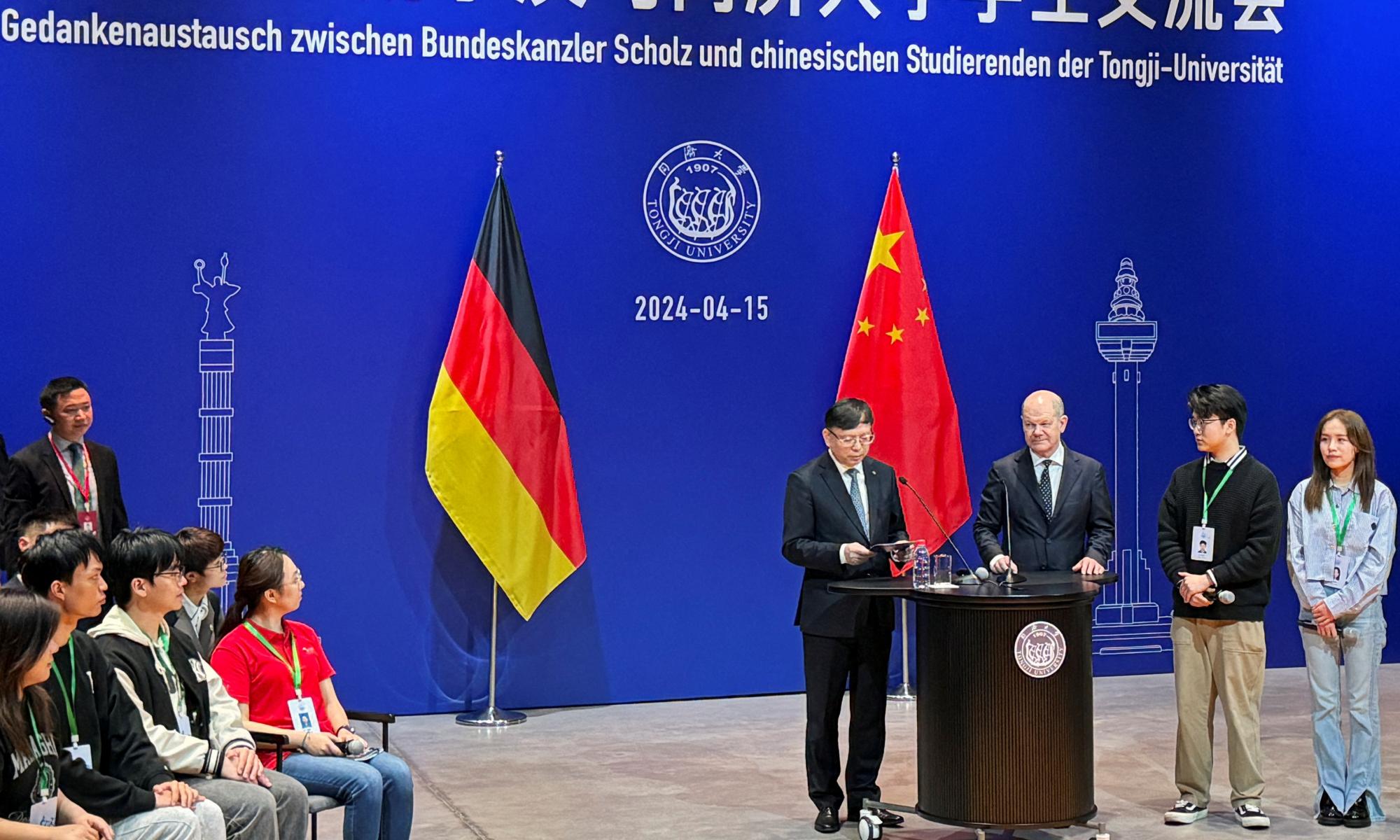
Olaf Scholz: ‘The only thing that always needs to be clear is that the competition is fair.’ Photograph: Andreas Rinke/Reuters
The chancellor of Germany has urged industry bosses in China to play fair by not overproducing cheap goods or infringing copyright rules.
Speaking on a three-day visit to China where he is travelling with leading business representatives and three government ministers, Olaf Scholz said he, in turn, would encourage the European Union not to be driven by self-interested protectionism, in which governments restrict international trade to help domestic companies.
Scholz was seen to be treading a careful path, driven by European concerns that Chinese goods are being dumped on the continent’s large market in ever increasing amounts.
With a focus on the automotive industry, Scholz said he expected Chinese cars to be widely available in Europe but argued that European cars should have equal access to the Chinese market.
“The only thing that always needs to be clear is that the competition is fair,” he said during a discussion with students at Tongji University in Shanghai. “That means there can be no dumping, no overproduction and that intellectual property rights are not violated,” he said.
He also appealed to Chinese authorities not to hamper companies trying to set up manufacturing capabilities with burdensome bureaucratic processes, despite this often being a complaint of foreign companies wanting to set up shop in Germany.
“We of course want our companies to not have to face any restrictions, but equally, we will behave in a similar way,” he said.
His visit was the first since his government launched a “de-risking” strategy last July, aimed at ensuring Germany does not become too dependent on China’s economy, the world’s second largest. The move was in part a reaction to the experience during the pandemic, when Germany – just like the rest of Europe – was shown to be heavily dependent on China for medical resources, including masks, PPE, and coronavirus test equipment.
But it also comes at a time when the German economy is more dependent upon China for manufactured goods than ever before. Under scrutiny in particular are solar panels and wind turbines, the markets for which in Europe have become increasingly flooded with Chinese products, often stifling domestic production and causing companies to go bankrupt.
Chinese cars are the latest product to be seen as a threat to European producers.
In addition, e-commerce companies like Temu and the fast-fashion brand Shein are increasingly making their mark in Europe and beyond with rock-bottom-priced goods produced in China, often, according to ongoing investigations, by forced labourers, including imprisoned Uyghur people.
Scholz is under pressure to talk about the ethical, environmental and economic consequences of this, along with other human rights issues, with his Chinese counterparts, when he meets President Xi Jinping on Tuesday. Also on the agenda is China’s increasing support for Russia in particular over its delivery of military-related supplies to Moscow, as well as concern over China’s conflict with Taiwan.
He was cautious though, when pushed to go further and back calls by the EU Commission president, Ursula von der Leyen, for the bloc to introduce measures preventing Chinese products from flooding the market. Scholz said arguing for fair competition “must be done from a position of self-confident competitiveness and not from protectionist motives”.
He recalled how the entry of Japanese and South Korean cars on to the European market had been a cause for concern, just as Chinese cars were now. “But that’s rubbish. Now there are Japanese cars in Germany and German cars in Japan,” he said. “And the same applies to China and Germany.”
Recently, von der Leyen talked about a “dramatic overproduction of electric vehicles in China, coupled with massive state subsidies”, in an interview with German media.
The US, Mexico, Brazil and Turkey have recently taken measures to protect their markets against the import of Chinese cars.
News Related-
High court unanimously ruled indefinite detention was unlawful while backing preventive regime
-
Cheika set for contract extension as another Wallabies head coaching candidate slips by
-
Analysis-West's de-risking starts to bite China's prospects
-
'Beyond a joke' Labor won't ensure PTSD protections: MP
-
Formula One season driver ratings: Lando Norris shines as Max Verstappen nears perfection
-
Catalina golfer Tony Riches scores Guinness World Record four holes in one on same hole
-
Florida coach Billy Napier fires assistants Sean Spencer, Corey Raymond with expected staff shakeup ahead
-
Rohingyan refugee NZYQ accidentally named in documents published by high court
-
Colorado loses commitments of 2 more high school recruits
-
Queensland Health issues urgent patient safety alert over national bacteria outbreak
-
Townsville Community Pantry 'distressed' by fruit, vegetable waste at Aldi supermarket
-
What Is The Beaver Moon And What Does It Mean For You?
-
Labor senator Pat Dodson to resign from politics due to health issues
-
Hamas releases 11 more hostages, as Israel agrees to extend ceasefire
